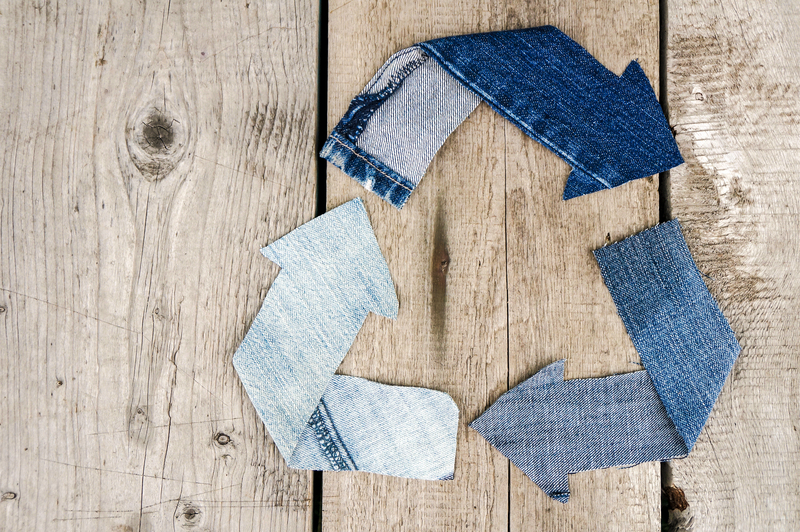Why Responsible Disposal of PPE Waste Matters for Everyone
The use of Personal Protective Equipment (PPE) soared to unprecedented levels during the COVID-19 pandemic. From face masks to gloves and protective gowns, PPE has become an inseparable part of daily life. However, the improper disposal of this essential gear has created a new environmental and public health crisis. In this article, we'll delve into why responsible disposal of PPE waste matters for everyone, explore the far-reaching consequences of neglect, and outline actionable solutions.
Understanding PPE Waste and Its Growth
PPE refers to any equipment worn to minimize exposure to hazards that cause serious workplace injuries or illnesses. While PPE like masks, gloves, gowns, and face shields were previously confined mainly to medical settings, the pandemic made them an everyday necessity worldwide.
- Worldwide PPE production increased exponentially in response to the pandemic.
- Recent estimates suggest 129 billion face masks and 65 billion gloves are used globally every month.
- The majority of PPE is made from single-use plastics, such as polypropylene or polyethylene, which are not biodegradable.
The Surge in PPE Waste and Its Immediate Impacts
The shift to mass PPE usage has inadvertently created a substantial waste challenge:
- Overflowing landfills and urban litter
- Marine and river pollution due to PPE items entering waterways
- Threats to wildlife and biodiversity
- Risks of disease spread from contaminated PPE

Why Responsible PPE Waste Disposal Matters for Everyone
Proper PPE waste management transcends borders and individual responsibility. Here's why everyone has a stake:
Protecting Public Health
Discarded PPE can be a direct vector for infectious diseases. When used masks or gloves are tossed recklessly, they may harbor pathogens that survive for hours or days, posing risks to sanitation workers, community members, and even animals. Irresponsible disposal increases the likelihood of secondary disease transmission.
- Cross-contamination: Disposed PPE on streets, parks, or public transport spreads contaminants through touch or air.
- Risk to waste handlers: Those collecting waste are at higher risk of exposure to infectious materials.
- Community transmission: Children or passersby may unknowingly touch contaminated masks or gloves, facilitating the spread of diseases like COVID-19 and other pathogens.
Environmental Hazards of Improper PPE Disposal
PPE litter doesn't just disappear. Face masks, gloves, and shields often end up in landfills or water bodies, where they can take centuries to break down. During that time, they contribute to:
- Plastic pollution: Most PPE is made of plastic that breaks into microplastics, which are harmful to both land and marine ecosystems.
- Wildlife endangerment: Animals mistake PPE for food or become entangled, leading to injury or death.
- Soil and water contamination: Chemicals leached from degrading PPE can contaminate groundwater and soil, affecting agriculture and drinking water sources.
Socio-Economic Consequences
Improper disposal of PPE waste can have far-reaching socio-economic effects:
- Financial burden: Municipalities spend significant resources on cleaning and safely disposing of PPE litter.
- Tourism impact: Littered landscapes, beaches, and waterways deter tourists, hurting local economies.
- Public perception: Heavily littered areas discourage community pride and affect mental well-being.
Legal & Regulatory Implications
Many regions have enforced regulations mandating the responsible disposal of medical and PPE waste. Non-compliance can result in hefty fines and penalties for organizations and individuals.
The Right Way to Dispose of PPE Waste Responsibly
Everyone has a part to play in responsible PPE waste disposal. Whether you're a healthcare worker, business owner, or ordinary citizen, these best practices can help mitigate the impact of PPE waste:
1. Separate and Contain
- Designate a bin: Always dispose of used PPE in a designated, closed-lid bin, separate from recyclables or general waste.
- Avoid flushing: Never flush PPE items like masks or gloves down toilets or sinks--they clog systems and end up in water bodies.
2. Use the Right Disposal Bags
- Double-bagging: For homes with confirmed contagious cases, double-bag used PPE and keep it isolated for at least 72 hours before disposal.
- Labeling: Label bags as medical or hazardous waste when required, especially in workplaces and healthcare facilities.
3. Community Education and Awareness
- Spread awareness: Local authorities should run public campaigns on the right way to dispose of PPE.
- Clear signage: Place educational signs and posters in public spaces to guide disposal behavior.
4. Safe Collection and Transportation
- PPE for handlers: Ensure waste handlers have adequate protective gear to minimize exposure risks.
- Specialized transport: Use vehicles specifically designed for medical and hazardous wastes.
5. Explore Alternatives: Reusable and Biodegradable PPE
- Reusable PPE: Where safe and feasible, use washable masks, gowns, and gloves to reduce single-use waste.
- Biodegradable options: Look for PPE made from compostable materials to lessen environmental impact.
Global Perspective: What the World Is Doing
Innovative PPE Waste Solutions
Around the world, nations and organizations are developing creative ways to tackle the PPE waste crisis:
- Recycling technologies: Some companies convert polypropylene masks into road-building materials or construction bricks.
- Energy recovery: Pyrolysis processes can turn PPE plastics into fuel or energy, providing a cleaner disposal route.
- Collection points: Supermarkets and pharmacies in some countries now offer designated PPE disposal bins.
Government Regulations and Guidelines
- Mandatory segregation: Many countries require the segregation of PPE waste from household or general waste.
- Incineration and autoclaving: Medical wastes, including used PPE, are often incinerated or sterilized in high-temperature facilities to prevent infectious outbreaks.
Community Initiatives and Citizen Science
- Beach and river cleanups: Volunteer groups are removing tons of PPE litter from natural habitats.
- Crowdsourced waste mapping: Apps and citizen science projects track PPE pollution, helping target cleanup and policy efforts.
Consequences of Ignoring Responsible PPE Waste Management
Failing to address the PPE waste problem puts us at risk for a "pandemic after the pandemic"--this time, an environmental one. The most critical dangers are:
- Worsening Plastic Pollution: PPE adds millions of tons of non-biodegradable waste to the environment yearly.
- Threats to Marine Life: Masks, gloves, and gowns endanger countless aquatic species through ingestion and entanglement.
- Public Health Crises: Improperly handled PPE can ignite fresh outbreaks of infectious diseases.
- Overburdened Waste Systems: Municipal services and waste facilities struggle to cope with the new surge in non-recyclable trash.
- Loss of Biodiversity: Toxic chemicals and microplastics enter food chains, harming humans and wildlife.

How Individuals Can Make a Difference
Responsible PPE waste disposal starts at home and in our communities. Here's what you can do:
- Educate yourself and others--share information about the dangers of PPE littering and proper disposal.
- Use sustainable PPE where safe--opt for reusable or biodegradable options.
- Dispose of responsibly--never leave used PPE in public spaces. Always use designated bins, and secure waste properly if you're sick.
- Support community initiatives--join local cleanups or waste education campaigns.
- Advocate for better policies--encourage local authorities and employers to provide proper disposal options and enforce rules.
Conclusion: A Shared Responsibility for a Safer, Cleaner World
The COVID-19 pandemic has reminded us that public health and environmental well-being are deeply interconnected. Responsible disposal of PPE waste is essential for protecting both. When we all take accountability for how we use and discard PPE, we protect our own health, our communities, and the planet for future generations.
As you go about your day--whether in a hospital, at work, or simply running errands--remember that every mask or glove disposed of responsibly is a step toward a cleaner, healthier world. It's not just about following rules; it's about ensuring the well-being of everyone, everywhere.
Together, let's make responsible PPE waste disposal a universal habit!
Want to learn more? Check with your local waste management authority for specific PPE disposal guidelines, or visit trusted environmental organizations for up-to-date advice and resources.
